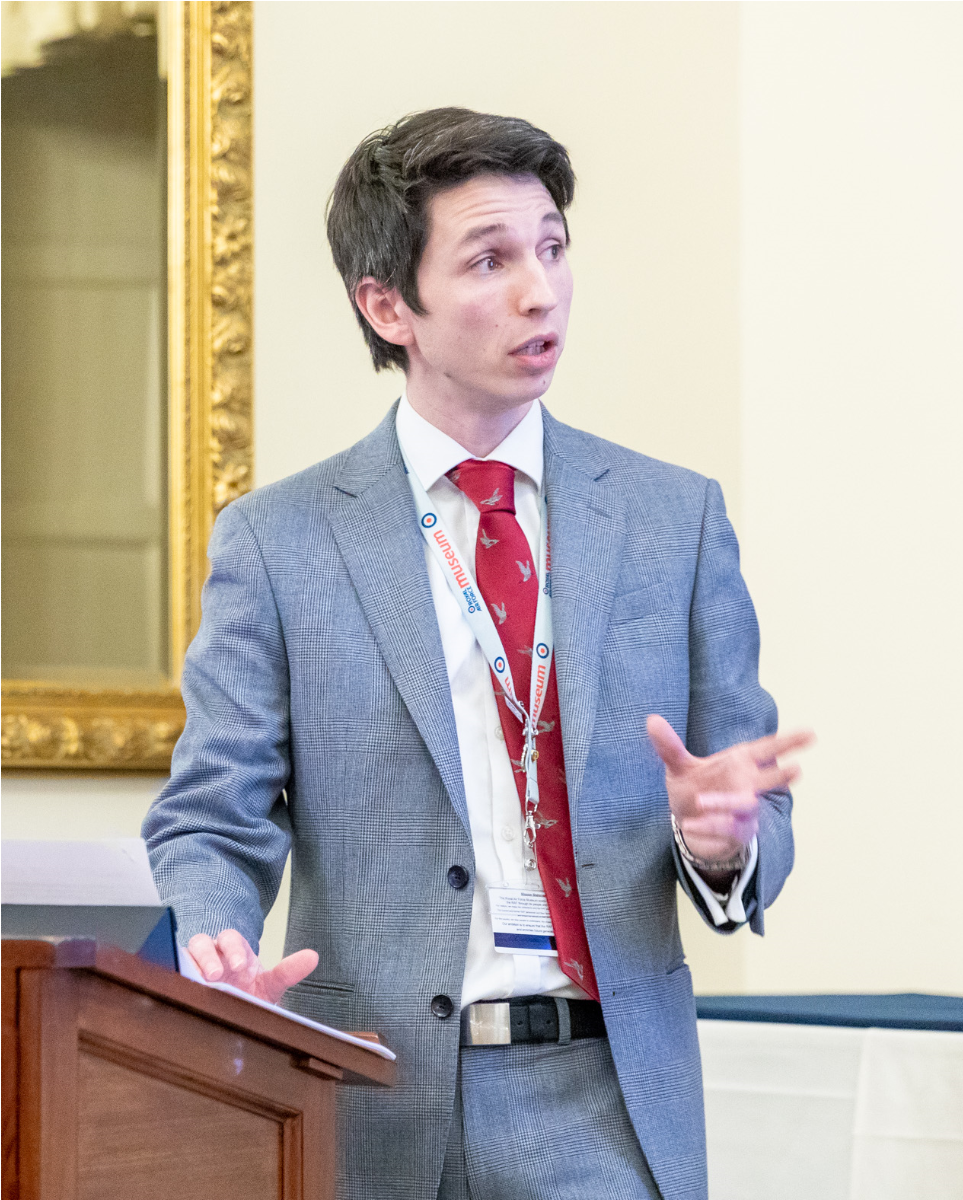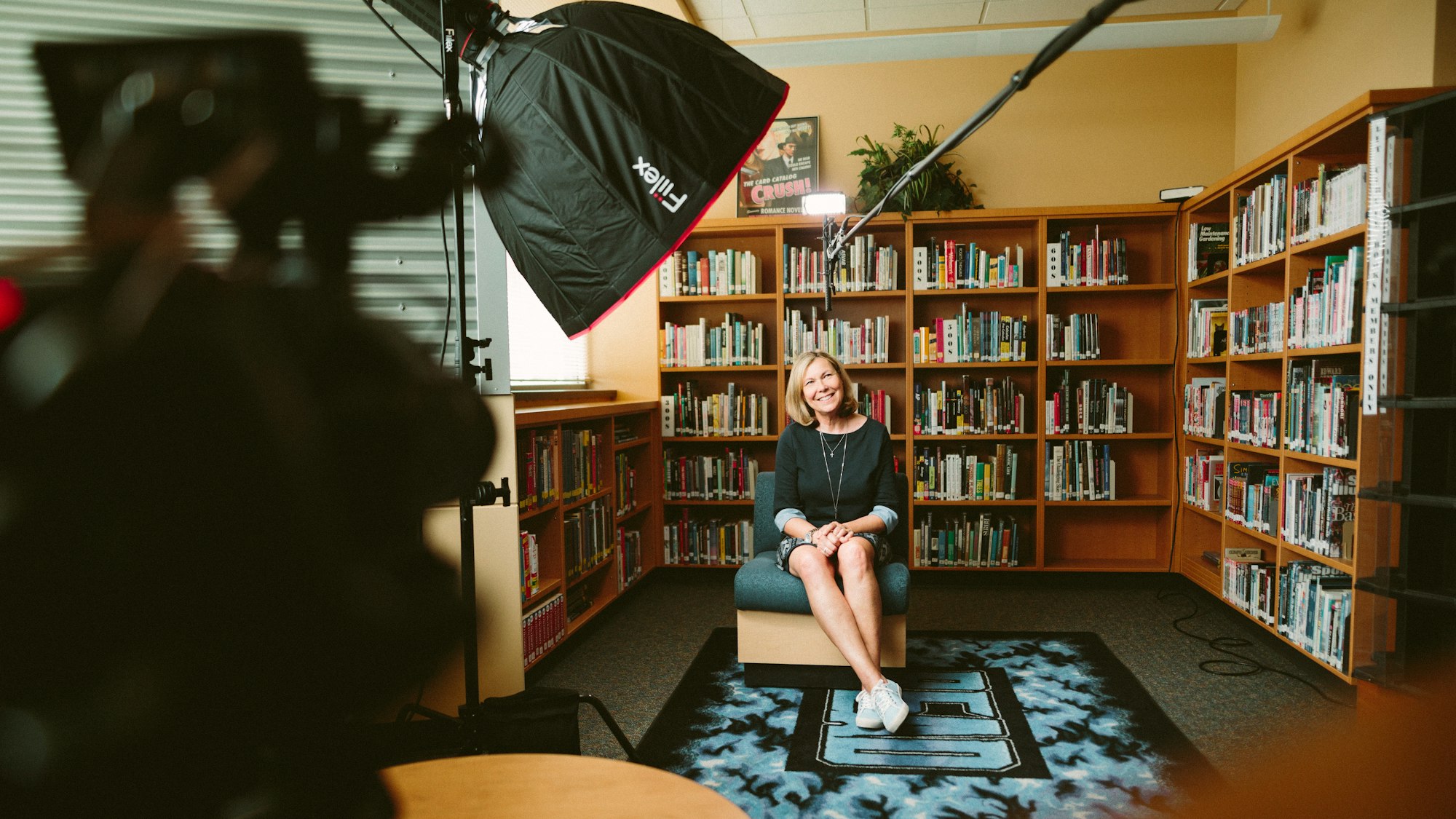
What is it like working in a museum compared with academia?
I think it is more helpful to see how much the two overlap. Curators do an extraordinary amount of research and hold a depth of specialist knowledge, on topics and collections. Perhaps the most significant difference is that publications are written less frequently but then the in-gallery results are seen by an audience a magnitude greater than will see the average research paper. What do you see as the biggest debates in air and space power at the moment?
How, when the armed forces as a whole have a smaller footprint in society, do we ensure the British Public have mature concepts of Air & Space Power — its utility, relevance and where relevant the appropriateness of its uses? Other strategic debates are of enormous importance but we can only apply the correct answers in the context of a public willing to accept and ultimately to pay for them.
In what ways does the RAF Museum connect with researchers?
The Museum aims to be a hub for all research on the RAF, or on-Air Power more generally. We offer a series of Academic Awards (BA and MA prizes and a PhD Bursary) and are always keen to keep in touch with those who are actively researching the RAF whatever stage of career they are at. The Museum directly contributes to PhDs through active involvement and supervision in Collaborative Doctoral Awards. To help disseminate research the Museum offers several different lecture series, including with the Royal Aeronautical Society and Academic Partners. The Museum hosts an annual conference that aims to be the leading forum for critical thinking in Air Power and offers an ideal networking opportunity for anyone researching in relevant areas.

What is your favourite exhibit in the RAF Museum?
A horribly difficult question as across the Museum’s two sites, London and Cosford there are so many remarkable exhibitions. However, the Handley Page Halifax Mk II (W1048) at the London site probably stands out as my ‘favourite’ exhibit.The story of W1048’s loss in its first operational flight and subsequent recovery of most of the wreckage (largely intact) from Lake Hoklingen is captivating in its own right. However, it stands out as an exhibit because left unrestored the wreckage makes it impossible to escape the consequences of conflict.
What has been the most surprising thing you have found in the RAF Museum?
A block of wood with an ‘interesting Air Ministry stamp’. Remarkably mundane.
What are you currently working on?
I have just finished working on Air Power and the Evacuation of Dunkirk is being published by Bloomsbury on 12 August (get your library to order a copy, horribly expensive being an academic imprint) and have begun researching the respective ‘Thoughts on War’ by the Trenchard and Sykes (respectively the first and second Chief of the Air Staff). However, I am also researching online memory and commemoration during recent 75th anniversaries of the Second World War (Arnhem, Dresden, VE Day, VJ Day) using ‘big data’ approaches involving web scrapes of websites and twitter captures. I am also running a volunteer project to capture the last 30 years of bravery awards in the RAF as part of a longer running g project within the Museum.
What got you into your field of study in the first place?
To a large extent, I think that is linked to growing up in London in an area shaped by Second World War bombing and my own family history. Ever present those factors were always revealing the idea that the past roots who we are and shapes who we might be. Dinosaurs were also a ‘big thing’ when I was young — I have to imagine those sorts of trends have a general feedback loop into what children become more generally interested in.
What was your path to where you are now?
I was never very good at very much else.
What are you currently reading and are you enjoying it?
I am currently reading Stephen Bawdsey’s Doctrine and Reform in the British Cavalry, 1880–1918 which is excellent.
How have you found working from home?
Challenging. Turning off is a much harder process.
What advice would you like to give PhD students and early career researchers that you wish someone had said to you?
Look for opportunities to collaborate and develop new skills. I started working on Digital History projects as much by a chance as design and it has consistently been the area where I develop new ideas and skills which feedback into and improve my other research projects.
Who have been the most influential academics in your professional career?
David Omissi has been a defining part of my research since my undergrad dissertation. I can remember reading Gary Sheffield’s Forgotten Victory and Dan Todman’s The Great War: Myth and Memory whilst doing my A-Level, they set the standard to try to emulate.
What are your top tips for getting published?
Be proactive, look for opportunities.
What is the most effective teaching method you have delivered or seen delivered?
In seminars, instead of doing generic icebreakers, encouraging short brainstorming sessions of how to answer relevant essay/exam questions to kick-off the seminar.
What is your favourite museum and why? [Imagine this is a no brainer for you!]
Tough question! The RAF Museum; it pays me to do what I love but it is also one of the most welcoming places for new researchers to become part of a wider community and share their ideas — so do email even if it is just to share what you are currently working on.
Visit the In Conversation catalogue page for more interviews.

